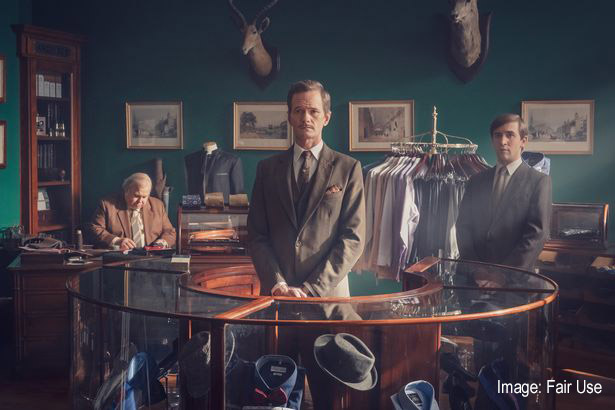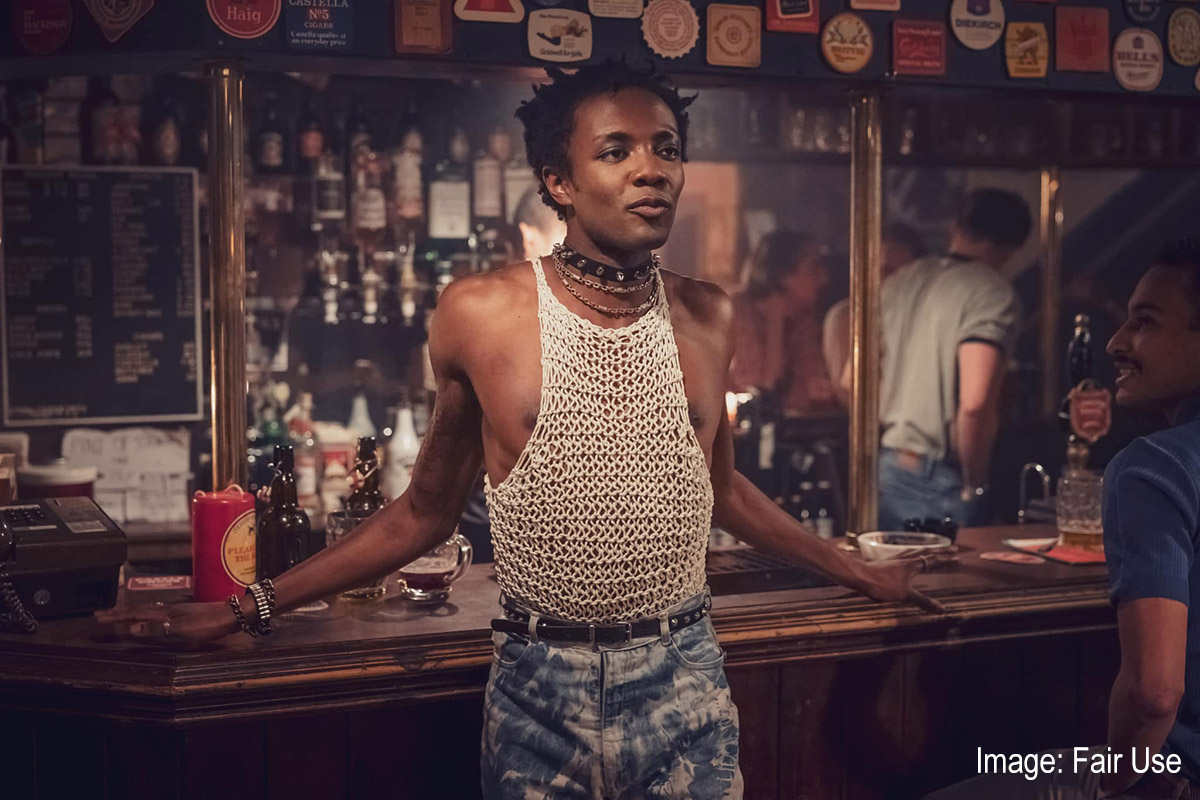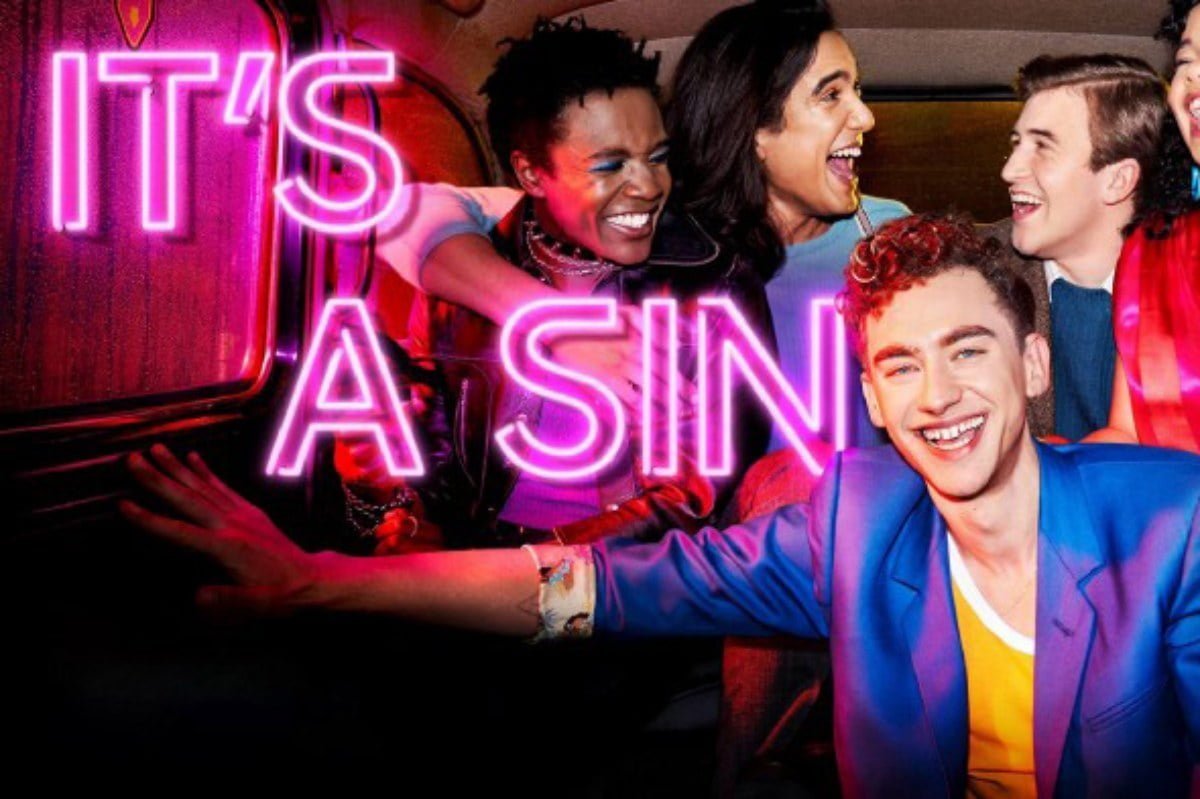‘It’s a Sin’, a new Channel 4 drama, chronicles the history of the HIV/AIDS epidemic via the story of a group of gay friends in the 1980s. In doing so, the series shows the oppression LGBT people face under capitalism – then and now.
Channel 4’s heart-wrenching series, ‘It’s a Sin’, has become its most-watched drama series ever. The drama follows a group of young gay friends in London between 1981-91 during the AIDS crisis. Just as they find safety and security for the first time in their lives, all of it begins to tragically unravel.
The series begins with each of the group starting their new lives in London. They search out friendly faces amidst a casual and open homophobia. However, although they don’t know it yet, the shadow of a cruel untreatable virus called HIV/AIDS is about to enter their lives.
Left for dead
 Colin, a shy young man working as a tailor’s apprentice, becomes friends with his mentor, Mr Coltrane. Coltrane mentions that his boyfriend – who works for an airline – has come down with a persistent cold. The doctors take him into hospital believing it may be pneumonia, then possibly ‘psittacosis’ – a disease contracted from infected birds.
Colin, a shy young man working as a tailor’s apprentice, becomes friends with his mentor, Mr Coltrane. Coltrane mentions that his boyfriend – who works for an airline – has come down with a persistent cold. The doctors take him into hospital believing it may be pneumonia, then possibly ‘psittacosis’ – a disease contracted from infected birds.
One day Mr Coltrane is off work sick and after a few days Colin goes to check on him, but finds his house empty. He eventually finds him in hospital on a locked ward all alone. He is emaciated and covered in dark spots or ‘Kaposi’s sarcoma’, a type of skin cancer. As he lays there slowly dying, Coltrane mistakenly believes it to be a strip of mould in the house that made him and his boyfriend ill.
Slowly but surely, one by one, the youthful and hopeful men begin to notice the rumoured symptoms on partners and friends. A sense of paranoia and fear sets in as more and more of them are ‘going home’ to never come back or be heard of again.
Rumours and misinformation
The series shows how the threat of the virus was initially shrugged off by some, even within the LGBT community, as something that was just limited to America.
However, as more information slowly begins to emerge, the HIV/AIDS epidemic is already taking hold in many countries, including Britain. This process was not helped by the misinformation and lies being spread by the capitalist press at the time.
Another character, Gregory, tells of the questionnaire he’s given in hospital for ‘people like us’, which asks his sexual preference and if he has sex with animals – a common homophobic slander at the time.
It was because of stigmas like this that many men and women were initially reluctant to seek help – looked down upon by society and not wanting to believe the horrifying rumours of a virus that was predominantly killing young gay men.
The extent of the social stigma is shown when Jill is asked by Gregory (aka Gloria) to do his food shopping because he’s not well. She agrees and goes to his flat where he tells her that he was diagnosed with tuberculosis but is getting better. However, he breaks down and admits he must have HIV. Sadly, Jill’s kindness can do little to prevent Gregory being claimed as yet another HIV victim.
Tory hypocrisy
 In one episode, it’s now 1988 and mass protests against Section 28 introduced by Thatcher are growing. It was this legislation that prevented schools and councils from “promoting the teaching of the acceptability of homosexuality as a preferred family relationship”. In effect, deepening the HIV/AIDS crisis and using homophobia as a tool to divide workers.
In one episode, it’s now 1988 and mass protests against Section 28 introduced by Thatcher are growing. It was this legislation that prevented schools and councils from “promoting the teaching of the acceptability of homosexuality as a preferred family relationship”. In effect, deepening the HIV/AIDS crisis and using homophobia as a tool to divide workers.
One of the group, Roscoe, a black male sex worker, has been meeting for private dinners and sex with a Tory MP in secret. One evening he attends a dinner and listens to a discussion between Tory MPs about the ‘doomed’ ILEA (Inner London Education Authority) and how to scoop up the incoming ‘influx of cash’.
He sees how the Tories – behind their usual mask of hypocrisy – are free to enjoy the liberties that they deny the rest of us, while discussing how to swindle us as well!
Free from oppression
Almost 40 years since the first diagnosed case of HIV/AIDS in the UK, there is still no actual cure. Although an HIV diagnosis isn’t the death sentence it once was, it does not mean that another AIDS crisis is impossible.
Whilst more than $100 billion has (rightly) been spent in tackling the COVID-19 pandemic, which has cost more than 2.5 million lives worldwide, less than $9 billion has been spent on HIV research over the last decade, despite this virus having claimed 33 million lives.
In one case we have a virus which threatens the bosses profits. In the other, it is more profitable to treat the virus as a chronic disease.
In a democratically planned socialist society, by contrast, all the economic resources necessary would be deployed to wipe out these terrible diseases.
Much like the celebrated film Pride, this is a series that highlights the homophobic campaigns waged by the ruling class against the LGBT community and working class.
And despite the great gains achieved since then, it also shows just how far there is still to go to in the struggle against capitalism – and for a society free from disease and oppression.






